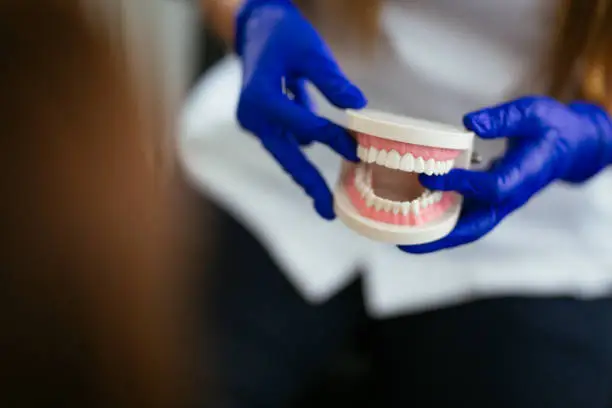
The Importance of Dentures for Oral Health
Dentures, also known as false teeth, are prosthetic devices designed to replace missing teeth. They come in different shapes, sizes, and materials, depending on the patient’s needs and preferences. Dentures are an essential part of oral health care, and they provide numerous benefits that improve the quality of life for those who use them.
In this article, we’ll discuss the importance of dentures for oral health, their benefits, the types of dentures, and how to care for them.
Why Are Dentures Important for Oral Health?
Dentures play a crucial role in oral health by replacing missing teeth and restoring the functionality of the mouth. When teeth are missing, the remaining teeth can shift and move, causing bite problems, speech difficulties, and even jawbone loss. Dentures prevent these issues by replacing missing teeth and maintaining proper alignment and support of the remaining teeth.
Additionally, dentures improve the appearance of the face by filling in gaps left by missing teeth. They can also improve self-confidence and quality of life by allowing people to eat and speak more comfortably.
Benefits of Dentures
Dentures provide several benefits that improve the overall health and well-being of people who use them. Here are some of the benefits of dentures:
- Restored functionality: Dentures allow people to chew, speak, and smile confidently, improving their overall quality of life.
- Improved appearance: Dentures can fill in gaps left by missing teeth, giving people a more natural and youthful appearance.
- Better digestion: Proper chewing and grinding of food is necessary for good digestion, and dentures can help people digest food better.
- Prevention of jawbone loss: Missing teeth can cause jawbone loss, which can lead to facial collapse and other issues. Dentures prevent these problems by maintaining proper support and alignment of the remaining teeth.
Types of Dentures
There are several types of dentures, including:
- Conventional dentures: These are full dentures that replace all teeth in the upper or lower jaw. They are custom-made for each patient and require several appointments with a dentist or prosthodontist.
- Partial dentures: These are dentures that replace one or more missing teeth. They are designed to fit around existing teeth and can be removed for cleaning.
- Implant-supported dentures: These are dentures that are attached to dental implants, which are surgically placed into the jawbone. They provide a more secure fit and can improve the overall function of the dentures.
How to Care for Dentures
Caring for dentures is essential to ensure their longevity and maintain good oral health. Here are some tips for caring for dentures:
- Clean dentures daily: Dentures should be cleaned daily to remove food particles, plaque, and bacteria. Use a soft-bristled brush and mild soap or denture cleaner to clean dentures.
- Soak dentures overnight: Dentures should be soaked overnight in a denture cleaning solution to keep them clean and fresh.
- Handle dentures carefully: Dentures are delicate and can break easily. Handle them with care and avoid dropping them.
- Visit the dentist regularly: Regular dental check-ups are essential to ensure the dentures fit correctly and to detect any oral health issues early.
Conclusion
In conclusion, dentures are an important aspect of maintaining good oral health. They provide numerous benefits, including restoring functionality, improving appearance, and preventing dental issues. If you’re considering getting dentures, make sure to consult with your dentist or prosthodontist to determine which type is best for you. And if you’re looking for a trusted dental group to assist you in your oral health journey, consider H.A Dental Group. Their team of experienced professionals can provide you with the care and support you need to maintain a healthy smile.
Leave a reply
